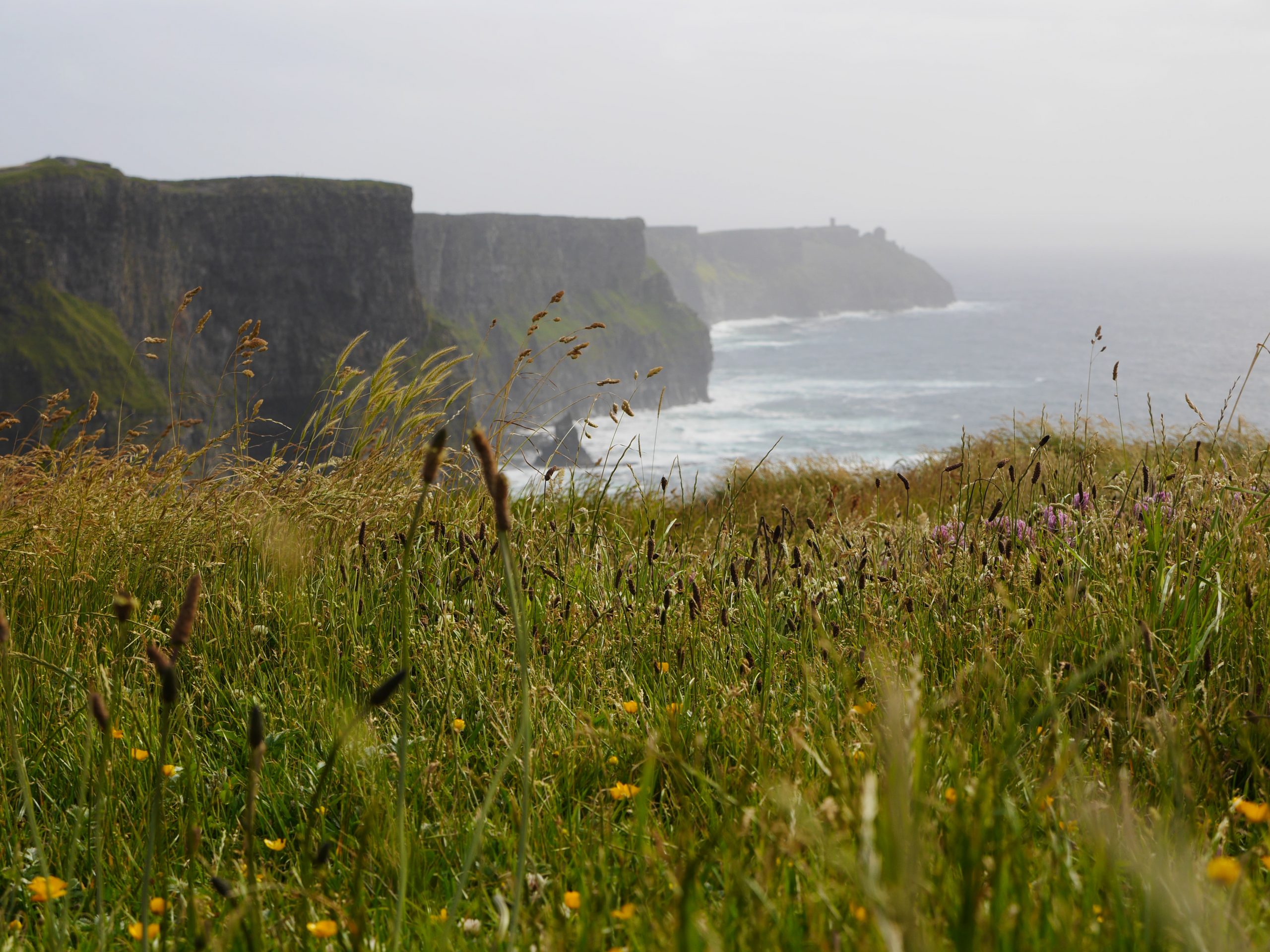
May Your Lawn Grow Wild This Spring
Finally—finally! We can turn off our heaters. Spring has arrived in our hometown of Newport, Rhode Island. As many Rhode Islanders eagerly watch their gardens turning green again, the temptation to throw fertilizer down, add another layer of mulch, and pull out weeds is strong. But landscaping #fortheocean doesn’t have to be a big chore. A few minor tweaks in your springtime plans can turn your lawn from a hazard to ocean health to a harbinger of hope for the ocean.
We hope you’ll join us and landscape #fortheocean.
Step 1: Save the Birds and Bees
The birds and bees are back, and they’re hungry. In early spring, the flowering plants that turn our lawn into colorful meadows, often considered “weeds,” provide important food for bees that have survived on stockpiled honey for the last three months. After the flowers are pollinated and have gone to seed, the birds swoop down to feast.
According to the 2021 petition to list the American Bumblebee as an endangered species, its population declined by 89% due to many factors, including habitat loss and climate change. And with the bee population dwindling, the birds may follow, along with our gardens, weeds and all. Let’s leave a snack outside—it’s the least we can do.

Step 2: No Mow May
No Mow May is a growing trend, as simple as the name. Sit back, relax and let the “weeds” and grass grow. By giving your lawn a chance to flourish, birds and bees can get their springtime meals. If your neighbors have an aversion to the movement, send them this New York Times article from the comfort of your lawn chair. If you can’t relax, you can put your energy into step 3.

Step 3: Compost indoors and outdoors
By separating your food scraps from the rest of your trash, you can significantly reduce what you send to the landfill—and reduce the harmful methane gas that food waste makes when it’s buried at the dump. On average, 50% of a household’s waste could be composted in the U.S.
You may already be composting inside—but have you started composting outside yet? Compost helps your soil do a better job of storing carbon and feeds your trees so they can do a better job at drawing carbon from the atmosphere too. By holding 5x more water than regular soil, compost helps reduce local flooding from those turbulent spring rains by absorbing stormwater and filtering out pollutants from your neighbors that haven’t quite caught on to the fertilizer-free trend.

So this spring, when you head to the garden store, buy compost instead of fertilizer, your garden, the bees, and the ocean will thank you!
P.S. Need one more reason not to buy synthetic fertilizer? They contain large amounts of nitrogen that runs off into your local waterways. The excess nitrogen in the water can cause algal blooms (aka red tide) that blocks sunlight from penetrating the surface, harming underwater marine life.
Take Action
- In Rhode Island, you can join the Healthy Soils Healthy Seas Rhode Island program that 11th Hour Racing is proud to support. It has already diverted over 2 million pounds of food waste from the landfill, and members get a bag of compost each spring.
- If you don’t call Rhode Island home, there are many more composting movements nationally; get started at CompostNow.org.
- Sometimes action means no action: don’t mow your lawn, at least for the month of May.
- Watch Sustainable Coastlines Hawaii’s new video about its new In-Vessel composting system.